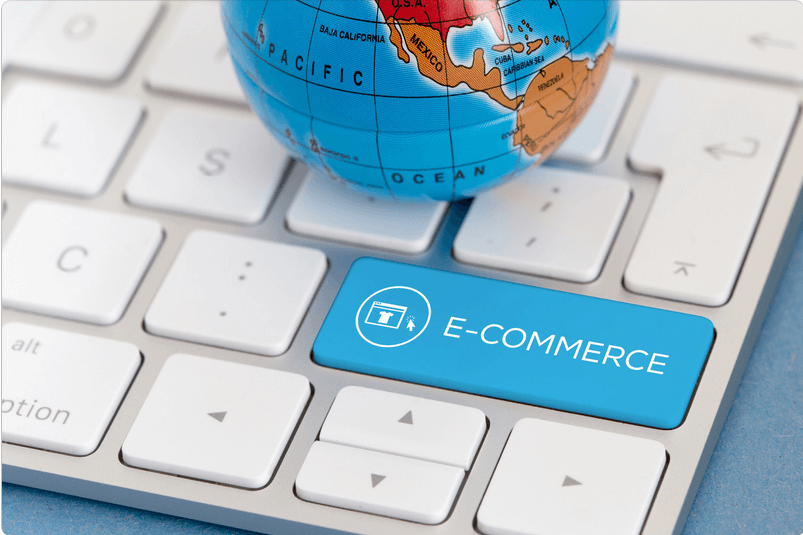Overview of E-commerce Day: A Gathering of the Industry’s Finest
E-commerce Day is a one-of-a-kind event that brings together the brightest minds in the online retail industry. This prestigious occasion fosters networking, collaboration, and learning opportunities for entrepreneurs, marketers, developers, and everyone.
Top Reasons Why E-commerce Day is a Must-Attend Event
1. Expert-Led Keynote Presentations
Delve into the world of e-commerce with insightful keynote presentations by industry leaders. These thought-provoking speeches will open your eyes to the latest trends, strategies, and innovations shaping online retail’s future.
2. Interactive Workshops and Masterclasses
E-commerce Day’s workshops and masterclasses provide hands-on learning experiences, equipping attendees with the skills and knowledge needed to succeed in online retail. Seasoned professionals lead these sessions and cover topics like data-driven marketing, SEO optimization, and supply chain management.
3. Valuable Networking Opportunities
E-commerce Day offers a unique opportunity to forge connections with like-minded professionals. Attendees can meet potential partners, mentors, and investors, paving the way for future collaborations and business growth.
Exclusive Insights: Expert Panels and Q&A Sessions
E-commerce Day’s expert panels and Q&A sessions provide an invaluable opportunity to tap into the collective wisdom of industry trailblazers. Get a front-row seat to discussions on emerging trends, best practices, and the future of e-commerce.
Innovative Solutions: E-commerce Tech Showcase
Witness the future of e-commerce firsthand with the E-commerce Tech Showcase. This exhibition hall features cutting-edge solutions from leading providers, enabling attendees to explore the latest tools and services that can elevate their online retail operations.
Award Ceremonies: Recognizing Excellence in E-commerce
Celebrate the achievements of outstanding individuals and organizations in the online retail space. The E-commerce Day awards ceremony showcases the accomplishments of those who have made significant contributions to the industry, inspiring others to follow in their footsteps.
Unwind and Connect: Social Events and Networking Mixers
After a day filled with learning and networking, attendees can unwind at E-commerce Day’s social events and networking mixers. These relaxed gatherings provide an informal setting for attendees to connect and foster lasting relationships with peers and industry experts.
Key Takeaways: Boost Your E-commerce Business
Attending E-commerce Day equips you with invaluable knowledge and insights that can help you scale your online retail business. Here are some key takeaways to expect from this exceptional event:
1. Gain a Competitive Edge
Stay ahead by learning industry leaders’ latest trends and strategies. Apply these insights to your business and gain a competitive edge in the ever-evolving world of e-commerce.
2. Optimize Your Operations
Discover best practices and innovative solutions that can help you streamline your e-commerce operations, from marketing and sales to fulfillment and customer service.
3. Build a Strong Network
Forge lasting connections with fellow attendees, mentors, and industry experts. Leverage these relationships to drive business growth and collaboration.
Secure Your Spot: Register for E-commerce Day Today
Don’t miss your chance to be a part of this groundbreaking event. Register for E-commerce Day today and unlock the secrets of success in the online retail industry.
FAQs
What is ecommerce day?
E-commerce Day is a prestigious event that gathers professionals, entrepreneurs, and experts from the online retail industry. It offers a platform for attendees to learn, network, and collaborate, featuring keynote presentations, interactive workshops, masterclasses, expert panels, and Q&A sessions.
Additionally, E-commerce Day showcases innovative solutions in the e-commerce tech space and recognizes excellence through award ceremonies. By attending E-commerce Day, participants can gain insights and knowledge that help them boost their e-commerce businesses and stay ahead of the competition.
Is social commerce an ecommerce?
Yes, social commerce is a subset of e-commerce. Social commerce refers to buying and selling products or services directly through social media platforms like Facebook, Instagram, Pinterest, or TikTok.
It combines the power of social media with e-commerce, allowing businesses to leverage social networks and user-generated content to drive sales and enhance the online shopping experience. By integrating shopping features into social media platforms, social commerce simplifies the purchasing process and enables users to discover, share, and buy products without leaving their favorite social media apps.
What does e-commerce deals with?
E-commerce, short for electronic commerce, involves buying and selling goods and services through digital channels, primarily the Internet. It encompasses a wide range of online business activities, including:
- Online Retail: Selling products directly to consumers via websites or mobile apps. Online retailers can offer various products, from physical items like clothing and electronics to digital products like software or e-books.
- Digital Services: Providing services such as graphic design, content creation, or consulting through online platforms, often facilitated by communication tools like email or video conferencing.
- Marketplaces: Platforms like Amazon, eBay, or Etsy that enable third-party sellers to list and sell their products to a broad audience.
- Subscription Services: Offering access to products or services regularly, often monthly or annually. Examples include streaming services like Netflix, software subscriptions like Adobe Creative Cloud, or subscription boxes for various products.
- Business-to-Business (B2B) E-commerce: Companies selling products or services to other businesses through online platforms, such as wholesalers, manufacturers, or software-as-a-service (SaaS) providers.
- Mobile Commerce (M-commerce): E-commerce transactions are conducted through mobile devices like smartphones or tablets, often using mobile apps or optimized websites.
- Social Commerce: Integrating e-commerce features into social media platforms allows users to discover and purchase products directly from social media feeds.
E-commerce also involves various support processes, such as online marketing, payment processing, order fulfillment, customer service, and inventory management.





